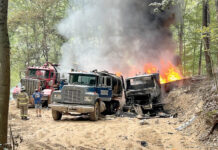“If we don’t plant the right things, we will reap the wrong things. It goes without saying. And you don’t have to be a brilliant biochemist and you don’t have to have an IQ of 150.”
— Maya Angelou
Attempting to make sense of yet another senseless tragedy in our country, I see the veil of numbness and exhaustion in the eyes of those around me.
Helpless hearts again bear the weight of disbelief as reports carry body counts inside a school in a lovely Florida town.
This news came to me on the heels of learning one little boy from a sweet family I know has silently borne the horror of being bullied at his small school.
I could not stop thinking about this, wondering what has gone wrong. Are we paying attention to all the wrong things? If so, how do we change for safety’s sake?
Innocence
Children have lost their innocence in this world. That, I think, is at the core of so much heartache we are witnessing within schools and communities.
There is anger, aggression, hatefulness, selfishness, loneliness in parts of our population, and all of it combines and simmers toward combustion.
Growing up in a much more innocent time, we were taught to be considerate of others, always. We were taught to never, ever point even a toy gun at any living thing because it was hateful, wrong.
We were to be truthful, but always kind, and to stand up for those who took the brunt of unkindness, finding a way to put the down-trodden on a gentle path of inclusion.
Some will read this and roll their eyes and say that is too simplistic, that it has nothing to do with where we stand in the discourse of society’s horrific unraveling. And they may be right.
There are no easy answers, and there is no turning back time. No matter how difficult it is to agree, we need to find a way to move on from here while making sure we can safely go to school and church, movies and concerts, to grow and prosper in our communities.
Research needed
We have a horrific and serious problem in this country.
I have read that European countries find the U.S. school shootings incredibly shocking, and wonder why money isn’t being spent to research why this is happening and what can be done to change it.
“Thoughts and prayers, U.S. politicians say. That is clearly not changing anything,” one European political media posting reads.
We need to do much more than offer thoughts and prayers. We need to actively work toward turning this tide in our country.
Put money toward researching this, and then educate us on how to be a part of the solution.
“Researchers may come back with something radical: that the answer is more guns for everyone. Maybe it’s better mental health support for schools and children. Better monitoring systems for bullying. More guidance counselors. Gun safety classes,” writes political editor Nirvi Shah.
We will not know unless and until we try.
When?
It is inexcusable to say “this is not the time to discuss the matter,” by someone in political power after each mass shooting.
Gather everyone who has intelligence on this matter, and find a way to bolster research, doubling down on reports of suspicious and worrisome behavior.
Too many tips go ignored, pushed aside. Mistakes have been made, concerns ignored, while those with the power to change things are spending time and resources elsewhere.
What could possibly be more important? Formulate some sort of plan in our communities, in each state, in our Capitol.
If not now, when?














Research? Sorry. Research has already been done: the main culprits:
FATHERLESS MALE CHILDREN
Boys Without Dads
Since 1960, the number of fatherless homes has increased by a factor of three such that, today, 1 in 3 children are raised in a home without a dad—and that doesn’t account for fathers who are physically present but emotionally or morally absent. This has had a devastating effect on society, in general, and on children, in particular. For example, data from the U.S. Census Bureau, Department of Justice, and the Centers for Disease Control, indicate that children who grow up in fatherless homes are:
20 times more likely to end up in prison
5 times more likely to commit suicide
14 times more likely to commit rape
9 times more likely to drop out of high school
10 times more likely to abuse chemical substances
20 times more likely to have behavioral disorders
Boys without dads, Dr. Warren Farrell explains in his book, The Boy Crisis, experience “a sense of purposelessness, a lack of boundary enforcement, [and] rudderlessness” which, when accompanied by testosterone that is not well-channeled by an involved dad,” can lead to destructive behaviors.
According to Dr. Farrell and other experts, those behaviors include an increased risk of mass violence. As Dr. Farrell observes, “our daughters are not killing,” neither are boys “with significant father involvement.” Rather, it is boys like Adam Lanza, Elliott Rodgers, Dylan Roof, and Nikolaus Cruz who grew up in fatherless homes.
That should sufficiently unsettle those who consider the modern decline of patriarchal influence a good thing. Over 80 years ago sociologist Willystine Goodsell warned that no country with a matriarchal structure has “led to a better family system. In every case—without a single exception it’s been associated with family weakness and unhappiness.” Given the family structures of today’s young mass killers, it may be associated with something much worse.
https://www.crisismagazine.com/2018/its-time-to-do-something
Americans should also begin to engage in difficult conversations with each other about the issue of gun control. A former top Australian policy maker once impressed on Americans to be a little bit strict on gun control. In fact he advised that the political leaders there should seriously consider banning the issuance of guns to civilians, a course of action Australia took with resounding success- it may sound outrageous and completely ridiculous to some, particularly given the pioneer spirit of many Americans. They feel strongly on the need for self-defense, but the proliferation of guns is by far the main cause of fatalities. Yes, I agree that if fatherless kids are omnipresent they still pose a great risk to societies, but at least they won’t have weapons of mass destruction. Now coming to the issue of fatherless children raised by fellow commentator @season_citizen, the phenomenon is not confined to humans only. Young bull elephants here in Africa, who grew up in the absence of patriarchs, due to rampant poaching are known to exhibit traits of aggression and destructive behavior towards other elephants and human communities. Where there is proper elephant family structures with older bulls, patriarchs and matriarchs the aggression and destructive behavior completely disappears.